In the aftermath of the unindicted police killings of Michael Brown and Eric Garner, we've been told that the system worked as intended. When our legal system's outcome is at conflict with what a majority of Americans believe is just, it's clear that some changes are needed. But what specifically needs to change? And what can an average citizen with a moral and just cause do to prevent these kinds of tragedies from repeating themselves again and again?
With protests giving voice to this issue across the nation, millions of people are crying for justice, and millions more want to know what they can do to help. So here at WonderHowTo, we decided to find out specifically which parts of the process failed us, and what you, a non-politician, can do to help make real and lasting change. You're going to have to learn a lot about how the system works, and it's not going to be easy to change it. But this is important. So stay with us.
We reached out to Kevin Crow, an international human rights lawyer, researcher, and lecturer who wrote the following guest post to explain what happened, what's broken, and what you need to do to help fix it.
How Can We Affect Social & Legal Change in the Aftermath of the Grand Jury Decisions in the Michael Brown & Eric Garner Cases?
There are a lot of good legal reasons to be furious about the grand jury decisions not to prosecute Darren Wilson for the slaying of Michael Brown, or Daniel Pantaleo for the suffocation of Eric Garner. Those reasons are compounded by public narratives that deny the racial significance and prosecutorial bias of these grand jury findings while, sometimes in the same breath, painting Brown as an archetypal "Black Brute" or blithely assuming the good intentions of both cops and prosecutors.
There are, and long have been, fantastic reasons to be furious about the training and behavior of many law enforcement officials, particularly toward minorities, in a variety of communities across America. And there are many avenues through which that fury can express itself—some more productive than others.
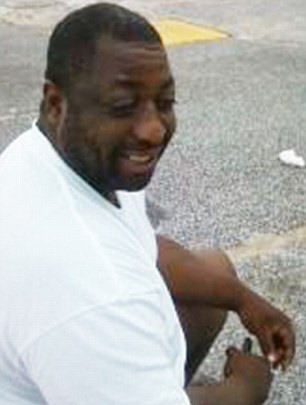

To transform fury into change, we need to identify exactly what things need to change, how those things can be changed, and who to support in the fight to change those things. I am offering five avenues in this article, though undoubtedly there are many more. While I do not think that there are any one-line solutions to the manifold problems with America's "justice" system (e.g., "Just get out the vote!"), I hope this article will provide some helpful information to those seeking to affect social change through peaceful action.



I will focus Part 1 on the Brown case and Robert McCulloch's prosecution of that case, since Eric Garner's grand jury report has not been (and may never be) released. In Part 2 below, I will include both local actions for residents of Missouri and potential national actions for those of us who reside elsewhere. And in Part 3, I will provide a brief list of people who can help make a difference and causes that I think deserve support.
Part 1: What Happened & What Needs to Change?
What factors produced a situation in which Officer Wilson's actions could be considered legal by at least 9 members of a 12-member grand jury? I've provided five below.
1. "Use of Force"
In 2012, 48 officers were intentionally killed while responding to felonious behavior, including one officer in Missouri. (That's the most recent year for which the FBI has published data.) Nobody knows how many civilians died at the hands of police that year (police departments are not required to disclose that information), but estimates range between 600 and 1,200, with roughly 400 of the homicides considered "justifiable."
Missouri's state law allows an officer to use deadly force during an arrest "when he reasonably believes that such use of deadly force is immediately necessary to effect the arrest and also reasonably believes that the person to be arrested (a) has committed or attempted to commit a felony; or (b) is attempting to escape by use of a deadly weapon; or (c) may otherwise endanger life or inflict serious physical injury unless arrested without delay."
This standard appears to be subjective. That is, it looks to whether the individual officer believed that use of force was necessary and whether that officer's belief was reasonable. In 1989, however, the U.S. Supreme Court articulated an objective standard for an officer's use of force. Namely, an officer's actions must be "objectively reasonable in light of the facts and circumstances confronting them." That standard requires jurors to evaluate the use of force from the perspective of a "reasonable officer on the scene."
An objective determination of reasonability would look to whether a reasonable officer in Wilson's shoes would have done what Wilson did in light of the circumstances, not to whether Wilson himself honestly thought that he was acting reasonably. The distinction between these two standards needs to be clarified, and we need to know which one applies to the cops in Missouri.
It appears as though Robert McCulloch's grand jury thought a subjective reasonable standard applied. This is most suggested by the fact that in order for that jury not to have issued a single charge, at least 9 of them would have had to think that there was no probable cause to believe that Michael Brown did not turn around and charge at Officer Wilson after Brown had already suffered three gunshot wounds and after Officer Wilson exited his vehicle. This belief is highly unlikely by an objective standard, considering that only 2 of the 23 witnesses before the grand jury fully corroborated Wilson's charging story (one of which was a blatant and unapologetic racist woman whose testimony changed often, contradicted the photographic evidence, and appears to have been totally made up). Officer Wilson may have believed that Brown was charging at him, and that belief would be sufficient by a subjective standard. But given that a majority of the eye-witnesses describe Brown's movement as something like an unintentional stumble rather than a charge, an objectively reasonable officer likely would not have shared such a belief.
Admittedly, this may have become my take on the objective/subjective approaches to reasonability because the alternative is too troubling. The alternative—namely, that the grand jury decided that a reasonable officer in Wilson's shoes would have shot Brown at least 6 times—would declare permissible a norm that assumes people of Brown's color, build, and demeanor present lethal danger to cops even when at least 30 feet away, unarmed, and wounded. The word "reasonable" in such a case would legally validate rationally invalid assumptions. I am not saying that such a validation would declare lawful a planned killing; I am saying it would declare rational a reaction based upon a status quo that predetermines "threat."
2. Prosecutorial Discretion in Grand Jury Proceedings
Robert McCulloch did not need to present Michael Brown's case to a grand jury. McCulloch could have filed a complaint bringing a charge against Officer Wilson and could have asked the judge for an indictment on that charge. A grand jury is commonly used in state felony cases in which the evidence is unclear but the prosecutor still wants to bring charges. A prosecutor might also present evidence to a grand jury to expedite trial proceedings (this has been criticized as a "rubber stamp").
Unlike regular trial proceedings, which are subject to a myriad of evidentiary rules to ensure no bad evidence reaches the jury, grand jury proceedings have virtually no evidentiary exclusionary rules. Also unlike a jury trial, a grand jury's decisions cannot be traditionally appealed. This means that the prosecutor, Robert McCulloch in this case, has broad discretion to direct the grand jury to a finding through the prosecutor's chosen evidence without any remedy for abuse of that discretion. This works reasonably well in proceedings where a prosecutor genuinely wants to prosecute a case, and the assumption is that this would be the very reason a grand jury would be hearing evidence in the first place.
In this case, however, there are many indicators that McCulloch and his colleagues did not actually want the grand jury to indict Officer Wilson. Indeed, even the fact that Wilson testified during grand jury proceedings in the first place is controversial because he did not have a compulsory right to testify (as the U.S. Supreme Court explained in 1992).
At trial, a defense lawyer (working for the cop defendant) would have called Wilson to the stand and asked questions of a nature similar to the one's McCulloch asked Wilson. After Wilson's lawyer had questioned him at trial, the prosecutor would (ideally) ask tough questions on cross-examination to test whether Wilson's testimony stood up to scrutiny. But before a grand jury, a prosecutor acts as something of a pre-judge, selecting only the most relevant (and certainly any potentially exculpatory) evidence in pursuit of an indictment.
The grand jury is at the mercy of the prosecutor's discretion and explanation of the law (so long as the judge does not object). The grand jury will very often hear evidence that would have been excluded at a real trial; here, for example, it is possible that trial evidentiary rules would have excluded Wilson's only two solid corroborating witnesses. The alternate prosecutorial intent is especially apparent in the way the assistant prosecutors stated the law to the grand jury. (I plan to address these issues more fully in a later article.)
But let's forget about what could have happened at trial for now. Let's turn instead to the grand jury process as a component of a justice system that promises to ensure that both defendants and victims get a fair shake, yet turns only to a prosecutor to decide upon the evidence presented before it.
What is lacking here is an appeals mechanism that allows for the possibility that a prosecutor might be intentionally steering the jury away from prosecution—one that does not involve the discretion of the prosecutor. Such a process is lacking at both state and federal levels, and given the fact that prosecutors already have massive discretion over who will face charges in the first place, the validity of the entire (antiquated) grand jury system appears mighty shaky.
The grand jury system has its roots in pre-colonial English law and was originally used in the U.S. to protect citizens from malicious or arbitrary prosecution at the hands of the expanding federal government. Today, the law protects citizens from such abuses by other more effective means, yet the grand jury remains, and the propensity of its processes for exploitation as a strategic prosecutorial tool has never been adequately addressed. Whatever the cogency of the grand jury system, we need to acknowledge the possibility that grand juries can be used to sidestep the harsher evidentiary standards that bind trial juries, and we need to protect the victims of cops against that possibility.
Generally, the closest thing to an appeals process in grand jury proceedings is this: When a grand jury declines to issue an indictment, a prosecutor can still obtain one if the prosecutor convinces the judge that the evidence would be sufficient for a jury to find probable cause. Needless to say, McCulloch will not be taking that road with the Michael Brown case. However, if significant new evidence comes to light (say, video evidence from an onlooker's smartphone), a prosecutor can bring the evidence before the same or a different grand jury, even if a grand jury has already issued a finding.
3. Police Training
The grand jury likely declined to indict Officer Wilson because it found that his actions were in tandem with his training. Unfortunately, McCulloch and his colleagues failed to ask many essential questions during the proceedings, including any real inquiry into the nature of Wilson's training as it would apply to the seventh, eighth, and ninth shots fired at Michael Brown. This makes it difficult to pinpoint the exact things about Wilson's training that should have been different.
However, we do know that Ferguson's police were not trained in conflict de-escalation techniques, nor were they required to undergo any kind of cross-cultural training to ensure that unconscious stereotypes do not play a role (or at least play less of a role) in an officer's split-second decision-making (this is something several advocacy groups are currently trying to change, e.g., the CCO).
There are, in fact, a variety of things police departments across the country have done to combat racial profiling, and many of these actions have produced results. Ferguson's mayor has pledged to address problems in police training and has pledged to adopt at least three additional reforms, the most important of which I think is listed next.
4. Local Recruitment for Cops
Officer Wilson started his career in the community of Jennings, Missouri. Eighty-nine percent of the residents of Jennings were black, while at least 95% of that police department was white.
In 2011, two years after Wilson's unblemished tenure began, the entire department was fired due to racial tensions that the Jennings City Council perceived as irreparable. Tensions reached such a state partly because in Jennings, as in Ferguson, "officers rarely stay in the same police force for a long time, much less for an entire career. This means police and residents are typically strangers to one another—and not simply from different social, ethnic or racial backgrounds."
Local recruitment and community engagement is increasingly cited among the most effective tools in building successful police offices and decreasing cop-on-civilian violence. Where officers are strangers to the communities in which they serve, stereotypes appear more likely to play a role in split-second decision-making, particularly in the decision to use force. Officers from a given community will best know how to relate to civilians from that community; with more common reservoirs of shared past experience, both civilians and officers are more likely to sympathize with the other's current experience.
The barriers to local recruitment in some communities are manifold, particularly in communities with a history of troubled relations with the law and law enforcement (especially in "poor tax" communities like Ferguson). Nevertheless, many sources, from conservative think tanks, to liberal academics, to trade publications, have emphasized the importance of increased police engagement with the communities they police. That is, social engagement, not policing engagement. Efforts must be redoubled to recruit officers who are ready to engage with their communities beyond a disciplinary level.
5. Availability of Video Evidence
Last year, the Police Foundation published a study measuring the effect of body-worn video cameras on an officer's tendency to use force. The extensive, randomized study took place over a period of one year and compared the behavior of both officers and citizens in camera-wearing (experimental) groups to non-camera-wearing (controlled) groups. The study's findings suggested "more than a 50% reduction in the total number of incidents of use-of-force compared to control-conditions" and a roughly 90% drop in citizens' complaints when compared to the 12-months prior to the experiment. The study attributes this radical decrease in police force to the knowledge of both the police and the public that their actions were on camera.
The Police Foundation study reflects the findings of the citizens of Rialto, California. Since the Rialto Police Department began requiring its officers to where bodycams in 2009, police use-of-force incidents have dropped by more than 64% and citizens' complaints have dropped by almost 90%. Notably, evidence from these cams can only be used in court if the officer is in a place where he or she has the right to be (i.e., a public place).
In the aftermath of the Brown shooting, Ferguson is already requiring that cops use bodycams. Unfortunately, this is no guarantee that cops will be held to account when they use unwarranted force on civilians, as tragically demonstrated by the New York grand jury that declined to indict Daniel Pantaleo even though he was caught on camera choking Eric Garner. Nevertheless, the footage of Garner's death certainly prevented Pantaleo from raising a defense that Garner attacked him first. And more importantly, Pantaleo's behavior had not been conditioned by a constant and continuous knowledge that all of his actions were being recorded. This "constant knowledge" component of the Police Foundation study is essential to explaining why cop bodycams prevent violent cop-on-civilian behavior. So it's wise not to dismiss their efficacy based on the Garner case's outcome.
Many witnesses who testified before the grand jury in Ferguson gave differing descriptions of several of the legally crucial events that took place in the moments before Brown's death (although about 86% of the uninvolved witnesses disagree with essential elements of Wilson's account). And troublingly, Wilson's grand jury testimony regarding the events contains several unlikely factual claims, even overlooking his insistence on using cartoonishly dehumanizing terms to describe Michael Brown such as "demon" and "Hulk Hogan."
As it stands, the world will likely never know exactly what took place before Wilson fired his final fatal rounds into Brown's head. But had Wilson been wearing a body camera, the entire world could know the exact nature of the events. Certainly, the prospect of increased government surveillance of private life can be unsettling, but I would submit that cop body cams are more accurately described as increased private surveillance of public servants.
I do not mean to diminish the complexity of privacy issues; there is a vast expanse of grey area that screams for debate. I, for one, prefer the two-party consent approach of California, which (at the risk of using blanket oversimplification) requires both parties to consent to the recording of an interaction in a private space (e.g., your house) but require only the consent of the officer for public spaces (e.g., the sidewalk). Whatever the approach, I think all would agree that this much is proven: cops who wear and have knowledge of bodycams have proven to be less likely to use any force whatsoever against civilians, much less lethal force.
Part 2: What You Can Do to Affect Positive Change
How can we change the factors that produced a situation in which Officer Wilson's actions were considered legal by at least 9 members of a 12-member grand jury? I've provided (brief) corresponding actions below.
1. "Use of Force"
How to Change it Locally
Vote for state senators that are working to clarify Missouri's law on the use of force. The existing state criminal laws were written by state legislators (members of Missouri's house and senate) and they can be changed by state legislators, too. I've listed some active Missouri Senators in the last part of this article.
You can also support advocacy groups that use impact litigation to reshape judicial interpretations of existing state law. Here are a few:
- American Civil Liberties Union of Missouri
- St. Louis County's National Association for the Advancement of Colored People
- We the People Project
How to Change it Nationally
Beyond a certain relatively minimal point, the federal government doesn't have much control over a state's police power. So long as a state's criminal codes do not run afoul of the federal constitution, there is not much that can be done at the national level to change, say, Missouri's or New York's take on appropriate use of force for cops. Nevertheless, impact litigation groups can help here, too, whether it is because of a disconnect between the "reasonableness" standard required by the U.S. Supreme Court and the one applied in Missouri's grand juries, or whether it is some other aspect of the state's laws relating to police behavior. Here are a few groups involved with impact litigation at the federal level:
- American Civil Liberties Union
- National Association for the Advancement of Colored People
- The Center for Justice and Accountability
The federal legislature can also help by passing laws that promote reforms to police training by providing federal assistance or funding to states contingent upon such reforms. You can contact your district's congressmen and women to find out who supports such reforms via any of the following search tools.
2. Prosecutorial Discretion in Grand Jury Proceedings
How to Change it Locally
Criminal procedural rules are statutes; they can be rewritten and reshaped by elected legislatures. Grand jury proceedings are not typically hot-button election issues, so we need to start asking candidates for political office where they stand on grand jury procedure.
Are grand juries still useful? Should they be abolished entirely? Can some other, more equitable process accomplish their purpose? If not, how do the candidates propose we increase the accountability of prosecutors in grand jury proceedings? How can the candidates ensure that the grand jury system will not be used to side-step trials?
Vote for political candidates who demonstrate that they care about these issues. I have listed several in the last section of this article and hope to add many more to the list.
How to Change it Nationally
The American Bar Association has proposed the following reforms to the existing federal grand jury system:
- Better instructions from judges to jurors about the grand jury's powers and its independence from prosecutors.
- Reports by prosecutors on the performance of the grand jury system.
- Increased access to grand jury transcripts for suspects who are eventually indicted.
- Expanded safeguards against abuse of witnesses, including education about their rights and the presence of their attorneys.
- Notification of targets of investigations that they are targets.
- Optional rather than mandatory appearances by targets of investigations.
- An end to the requirement that prosecutors present defense evidence, and replacement with a requirement that grand jurors be informed that the defense was not represented in the hearing.
Again, even these suggestions work on the assumption that prosecutors will use grand jury proceedings with the intent to gain an indictment, but many of them would have been helpful if available to the witnesses in Wilson's hearing.
The last of the reforms on this list is most important, because it would add another professional voice to the proceedings; however, even having a defense lawyer present would not have helped in Brown's case, because neither lawyer would have actually sought an indictment (in my opinion).
The troubling lack of prosecutorial accountability has led some to argue that the entire grand jury system should be abolished, and I agree—at least when a police officer is being charged. This is because prosecutors and police officers work toward common goals for the vast majority of their careers; they are on the same side, trying to get the "bad guys," often developing close personal relationships in the process, or at least a general affinity for one another's position.
At the very least, external prosecutors with no connection to the communities involved in a grand jury or traditional prosecutorial attachment to law enforcement officials should be brought in to present the case before grand juries. Missouri certainly should not have allowed a prosecutor with a background like Robert McCulloch's to bring Wilson's case before a grand jury.
Whether reform or abolishment holds the answer to the problem of grand juries, federal procedural rules are federal statutes, written and changeable by federal legislatures. Write to your district's congressmen and women and let them know that you want to see the above listed changes in the existing system, and vote for congressmen and women who will act to manifest such changes.
3. Police Training
Police are trained to comply with the law. If police repeatedly do something the public considers morally repulsive, and the justice system repeatedly determines that no law was broken, the first step is to change the law through elected officials. Police are generally trained at public and private police academies, with state attorney generals determining minimum training standards. Elected officials can add to or change those standards.
How to Improve Police Training Locally
- Elect a Good Municipal Council
Vote for municipal officials who care about improving cop-civilian relations through police training. This includes both legislative and executive offices. Police are part of the administrative branch of government, and in most cities, the mayor is the chief of the city's administrative branch. In Ferguson, the seven-member City Council seems to carry the bulk of administrative authority. It is the council who appoints the City Manager, and the City Manager who in turn appoints the Chief of Police, for example. These seven people (or any four of them who agree) also have broad powers of suspension and removal.
- Civilian Review Boards
Section 590.0653 of Missouri's Revised Statutes affords citizens the right to establish "civilian review boards" to be "appointed by the local governing body, with the authority to investigate allegations of misconduct by local law enforcement officers towards members of the public." In the aftermath of the Brown shooting, Ferguson's city council has already pledged to establish such a board. Hold them accountable to this pledge.
Although this board is a step in the right direction, the Missouri statute does not grant the board any real disciplinary authority; it only allows the board to make disciplinary recommendations based on its findings. Vote for state officials who will change the law to grant real disciplinary authority to the board.
How to Improve Police Training Nationally
- Elect Good Mayors
Police are part of the administrative branch of government, and in most cities, the mayor is the chief of the city's administrative branch. Especially in small towns, mayors often have broad authority to appoint and remove various administrative officials, including the Chief of Police.
Take the time to learn about your local municipal government; each one is different. Find out who controls the police and how they are appointed. Support those who are trying to make a difference, call out those who are trying to keep things the same. It is easy to forget about the degree of control these seemingly "small time" politicians possess.
- Civilian Review Boards
Most states (perhaps even all) have a statute somewhat akin to Missouri's Section 590.0653. Yet many communities—especially lower income communities—have not established a Civilian Review Board to hold their police accountable. Find out whether your community has one. If it does not, ask a municipal or county administrator what it would take to establish such a board in your community.
These boards have varying degrees of power. For example, New York grants boards subpoena power while Missouri only allows the boards to make disciplinary regulations. Elect officials who will fight to give your state's review boards real power.
4. Local Recruitment of Cops
Whether a department recruits locally will be largely determined by individual municipal administrations and individual police departments (whose top officials are usually appointed by elected municipal officials). See the steps above under Part 2, Section 3 (Police Training).
5. Body Video Cameras for Cops
Whether a department requires its officers to wear bodycams will largely be determined by individual municipal administrations and individual police departments (whose top officials are usually appointed by elected municipal officials). See the steps above under Part 2, Section 3 (Police Training).
Part 3: Who Can We Support?
Who can we support in the fight to remedy the factors that produced a situation in which Officer Wilson's actions were considered legal by at least 9 members of a 12-member grand jury? Use of force and grand jury procedure can be changed through state government; officer training, recruitment, and use of bodycams can be most easily affected through municipal government. I've provided a brief and very incomplete list below.
I would encourage any reader to think about the specific changes they would like to affect and seek out groups and individuals currently fighting to affect those changes. I would also encourage any reader to comment below with additional causes they feel are worthy of support so that I may add them to this section.
- The current Ferguson City Council has established a local Civilian Review Board. Support this action by actively engaging with the activities of the board, reading their reviews, and publicizing their work. Board members will be unpaid volunteers; let them know their work is appreciated.
- Senator Chappelle-Nadal, Missouri State Senator, sponsored SB 21 (provides more checks on officers during periods of civil unrest).
- Senator Curls, Missouri State Senator, sponsored SB 681 (eases sentencing requirements for select offenders) and SB 682 (eases adult penalties for juveniles).
- Senator Nasheed, Missouri State Senator, sponsored SB 42 (modifies Missouri's use of force law).
- Senator Walsh, Missouri State Senator, sponsored SB 120 (requires formal investigation procedures for deaths resulting from an officer's use of force).
- Look for members of the Missouri House who support progressive law enforcement legislation.
- Impact litigation groups:
- ACLU and their Missouri branch
- NAACP and its St. Louis County Branch
- Center for American Progress
- Center for Justice and Accountability
- We the People Project
If there are other groups you know of working towards enacting positive change, please let us know in the comments below.
And please share this article with those you know who want to make a difference, but feel like their efforts and protests are falling on deaf ears. It's going to take a coordinated effort to inform and empower a lot of people if we want to make a real change.
Just updated your iPhone? You'll find new emoji, enhanced security, podcast transcripts, Apple Cash virtual numbers, and other useful features. There are even new additions hidden within Safari. Find out what's new and changed on your iPhone with the iOS 17.4 update.
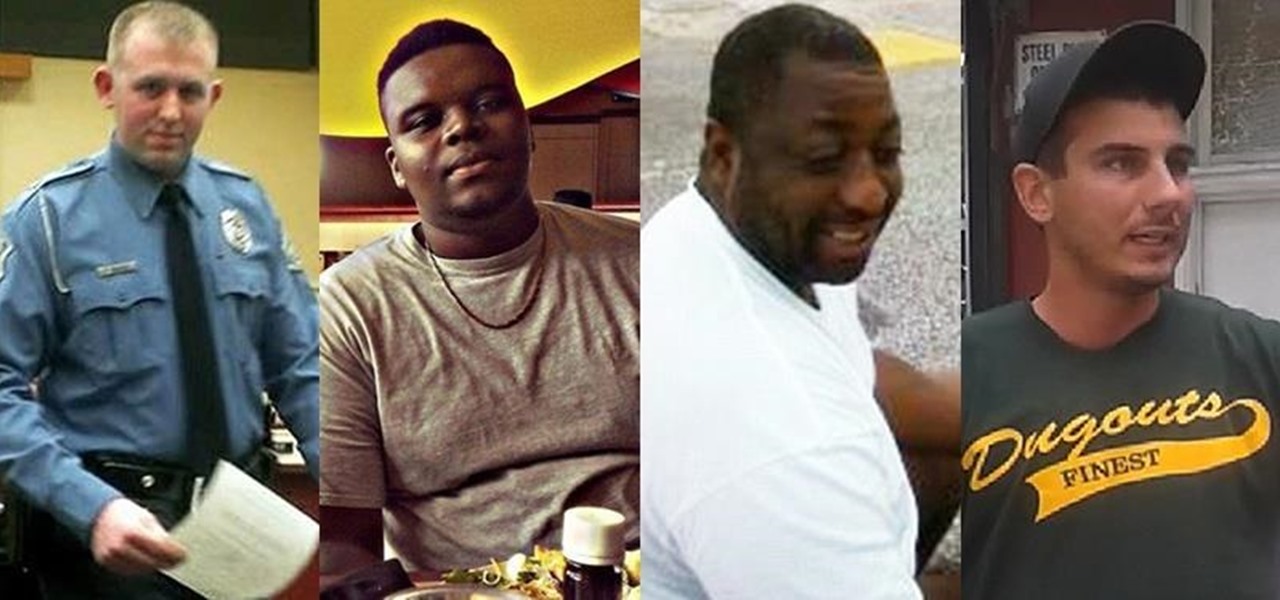



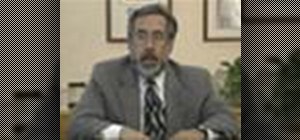
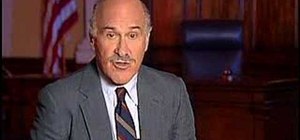

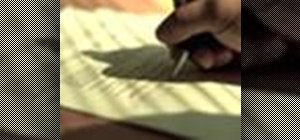
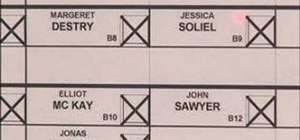

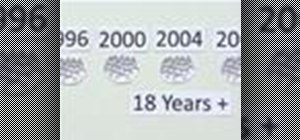
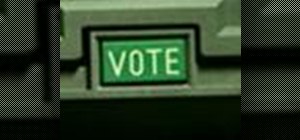


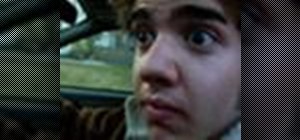






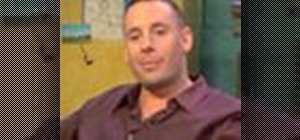
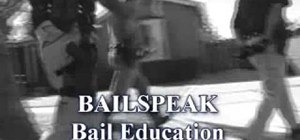
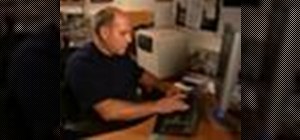


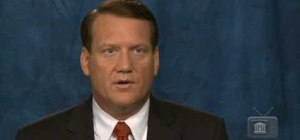

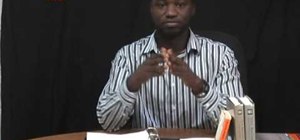
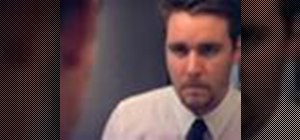


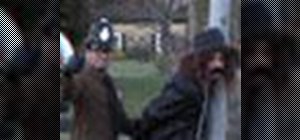
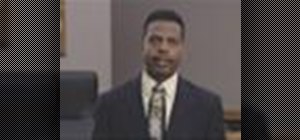
2 Comments
Kevin,
Great piece of work.
Kudos. Job well done. Thanks!
Share Your Thoughts